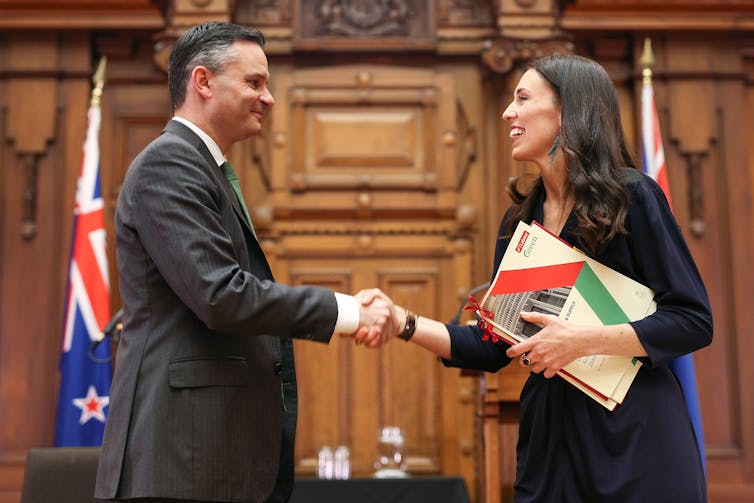When Health Minister Chris Hipkins recently quipped that the Green Party is “to some extent the conscience of the Labour Party” he was not simply referring to polls suggesting Labour may need the Greens’ support to form a government.
Hipkins was also suggesting Green policies help keep Labour honest on environmental and social issues. So, what difference has the Green Party really made to New Zealand’s political debate?
Drawing on a study of 57 million words spoken in parliament between 2003 and 2016, our analysis shows the presence of a Green party has changed the political conversation on economics and environment.
In the recent Newshub leaders’ debate, both Jacinda Ardern and Judith Collins agreed that “growing the economy” was the best way to respond to the economic crisis driven by COVID-19.
Their responses varied only on traditional left-right lines. Ardern argued that raising incomes and investing in training would grow the economy. Collins suggested economic growth should be advanced by increasing consumer spending through temporary tax cuts.
By contrast, Green parties in New Zealand and elsewhere have long questioned the impact of relentless growth on the natural resources of a finite planet. Green thinking is informed by ecological economics, which aims to achieve more sustainable forms of collective prosperity that meet social needs within the planet’s limits.

The language of economic growth
The impact of this radically different view can be observed in New Zealand parliamentary debates. When MPs from National and Labour used the word “economy” they commonly talked about it in the context of “growth” (“grow”/“growing”/“growth”).
On average, National MPs said “growth” once every four mentions of “economy”. Labour MPs said “growth” once every six mentions.
…click on the above link to read the rest of the article…